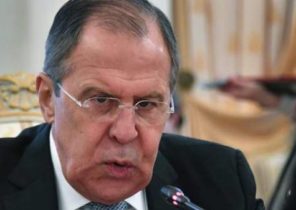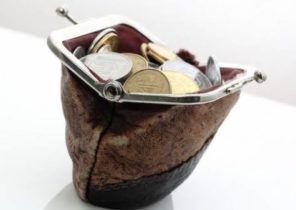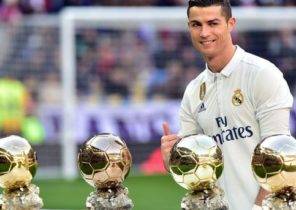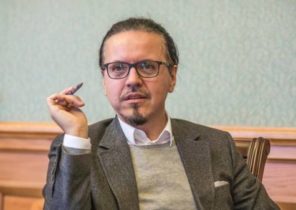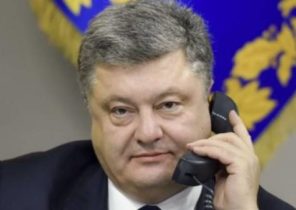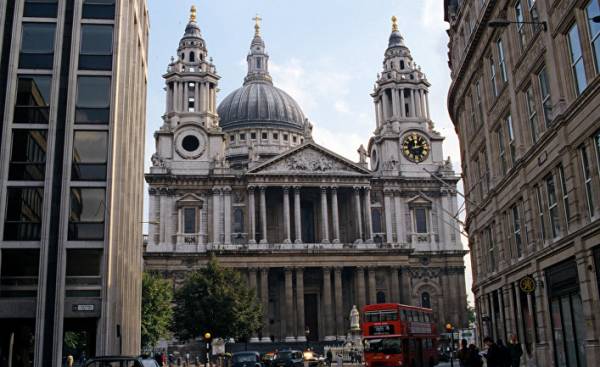
Although the UK has a state Church, few of us is paying attention now. We are disciples of the even more powerful religion, in accordance with which we build our lives — the economy. To think about it. The economy offers comprehensive doctrine with a ready-made moral code, which promise their adherents salvation in this world, ideology is so convincing that believers rebuild in accordance with the requirements of the whole society. It has its Gnostics, mystics and magicians, who miraculously makes money literally out of thin air, using such spells as “derivative financial instrument” or “structured investment company.” And, like the old religions, which she pushed on the back burner, the economy has his prophets, reformers, moralists, and most importantly, its own high priests, who defend its Orthodoxy in the face of heresy.
Over time, came to each other for a change, economists have slipped into the role that previously belonged to the clergy: the role of those who shows us the way to the promised land of material abundance and everlasting contentment. For a long time they seemed to have fulfilled this promise, and they were successful, which can hardly boast of many of the religions: our revenues have increased thousands of times, from the horn of plenty, we are showered with new inventions, tools, fixes, and fun.
This was our Paradise and we generously reward the economic priesthood, granting him status, wealth and power to shape our society in accordance with his vision. At the end of the 20th century, in conditions of economic boom, in which the Western economy has reached unprecedented in the entire history of mankind of well-being, the economy seemed to have conquered the globe. When almost every nation on the planet adhered to the same scenario of the free market, students flocked to universities to get a degree in Economics, it seemed that the latter has achieved the goal that has eluded all other religious doctrines in the history of proselytizing of the entire planet.
However, it should economists become convinced that they have found the Holy Grail of endless peace and prosperity, the current regime comes to an end — this lesson presents us with the story. On the eve of the stock market crash of 1929 the American economist Irving Fisher advised people to buy stocks; in 1960-e years the adherents of Keynesianism insisted that from now on, the recession will no longer be, as they have improved tools for the control and regulation of demand.
The economic collapse of 2008 is no exception. Five years earlier, on 4 January 2003, Nobel laureate Robert Lucas made a triumphant presidential address of the American economic Association (AEA). Reminding his colleagues that macroeconomics was born during the depression precisely in order to try to prevent the recurrence of another disaster of this kind, he said that he and his colleagues reached their own end of history: “macroeconomics in this original sense has succeeded, instructed it your Conclave. — Solved its Central problem of depression prevention”.
We should ensure that the economic priesthood permanently destroyed the old curse, as it returns to haunt us all: the decline invariably precedes confidence. After the recession of 2008, most of us experienced a reduction in their standard of living. Meanwhile, the clergy seemed to have returned to his monastic seclusion, arguing about who of them made a mistake. It is not surprising that our faith in “experts” dissipated like smoke.
Arrogance, and so little good, the economy can be especially dangerous because its researchers are not just studying the laws of nature — they help to create them. If the government led by his priesthood changes the structure of incentives of companies to, for example, to bring it in line with the assumption that people in their actions are guided by selfishness, then, of all things! — people start to behave that way. For this behavior they will be rewarded, otherwise punished. If you from an early age are taught that to be greedy is good, it is likely that you will follow this rule in your own life.
High self-esteem in the economy came not from the moral inconsistency of the economists, but their false belief that they are doing science. The economy has never been and cannot be a science in its functioning, it always looked more like a Church. To understand this, you just need to look at its history.
American economic Association, before which he delivered a speech Robert Lucas, was created in 1885, at a time when the economy was beginning to distinguish itself as a separate discipline. At the initial meeting, the founders of the Association proposed a program where it was stated: “the Conflict between labor and capital has brought to the fore a wide range of social problems whose solution is impossible without joint efforts of Church, state and science.” The market evangelism of recent decades was far away.
But even at that time such social activities was not without controversy. One of the founders of the AEA, Henry Carter Adams, was subsequently performed at Cornell University with the appeal, which upheld freedom of speech for radicals and Industrialists accused of inciting xenophobia to divert the workers from the facts of infringement of their own interests. Among the listeners was not known to him in a new York lumberman and philanthropist Cornell Henry Seig. As soon as the lecture ended, SAI rushed into the principal’s office and insisted: “This man needs to go; it undermines the foundations of our society”. When after the College career Adams was threatened, he agreed to moderate their views. Thus, in the final draft programme AEA has not included a reference to a free competitive economy as “unstable in political terms, and unhealthy moral”.
So it sets a sample that has been preserved to this day. Powerful political interests the bearers of which have historically been not only the rich Industrialists, but also the electorate — contributed to the formation of the economic Canon, which then has empowered the scientific community.
Once the principle is established as generally accepted, its implementation happens in much the same way that religious doctrine retains its integrity: by suppressing or simply evade heresies. In the book “Purity and danger,” anthropologist Mary Douglas explored how work taboos, designed to help people organize, it would seem, disorderly, chaotic world. Postulates of the traditional economy operate largely in a similar way. Robert Lucas once said approvingly that by the end of the 20th century the Economics are so effectively cleansed of Keynesianism that “the audience starts to whisper and giggle” each time in the seminar sounds any ideas of this economic doctrine. This reaction was intended to remind practitioners about the economic taboo: a light nudge to the young academician, an allusion to the fact that such stamps can not come to taste the University’s Committee on employment. This concern for order and consistency may not be so much a feature of the method, as the property of those who practice it. The study of personal qualities of students of different disciplines showed that the economy, like technology, in General, attracts people who give a strong preference for order and abhor ambiguity.
The paradox is that in their determination to make himself a science that is able to come to reliable and fast conclusions, the economy was forced from time to time to abandon the scientific method. First, it relies on many assumptions about the world not such what it is, but as he would like to see economists. Just as any religious service includes the proclamation of faith, membership in the priesthood of the economy entails a number of basic views on human nature. Among other things, most economists believe that we humans are selfish, rational, in fact, individualists and prefer more money to less. These dogmas of faith are perceived as something self-evident. Back in the 1930-ies great economist Lionel Robbins gave his profession as precise a definition, since his words were a fundamental rule for millions of economists. The main premise of this area of knowledge came from the “conclusions made on the basis of simple assumptions reflecting very elementary facts of General experience” and as such, “was of universal nature, like the laws of mathematics or mechanics, and could not be temporarily “removed””.
Deducing laws from the assumptions that were considered eternal and is not in doubt, there is a time-tested method. For several thousand years, the monks in the medieval monasteries was a huge body of scientific knowledge, in doing so, using a method perfected by Thomas Aquinas, known as scholasticism. However, this method is not in Vogue among scientists, which usually require exposing the assumptions empirical tests before based on them can be built a theory.
However, economists will argue that what they’re doing — from the monks they differ is that they still must test their hypotheses with the actual material. Well, the truth is this statement is actually not as easy as you can consider many ordinary economists. Physics to solve their disputes by looking at the data, which in General, they converge. Meanwhile, the data used by economists, to a much greater extent controversial. When, for example, Robert Lucas, insisted that the efficient market hypothesis of Eugene Fama in which he argued that, because the free market selects all available information to traders, the prices that he calls, can never be false — is considered true, despite the “wave of criticism”, he did it with the same conviction, citing the supporting evidence, which his colleague, economist Robert Shiller this hypothesis was rejected. When the Swedish national Bank had to decide who to award the Nobel prize 2013 in Economics, he was torn between Schiller, who claimed that markets are often wrong in price, and Famou, who insisted that markets were always right. In the end I decided to compromise and gave medals to everyone — partly solomonovka wisdom, which would have caused laughter, if we were talking about scientific awards. Very often in economic theory you believe what want to believe — and, as with any other act of faith, your choice is likely to reflect a sentimental predisposition, rather than scientific assessment.
There is no mystery about why the data used by economists and other adherents of the social Sciences, so rarely give conclusive results: this is data about the person. Unlike people, the subatomic particles are not telling the whole story on the polls and do not change their point of view. Mindful of this distinction, in his presidential address to the American economic Association half a century ago, another Nobel laureate Wassily Leontief chose to take a rather cautious tone. He reminded the audience that used by economists, the data differ from the data that we work with physicists or biologists. In the latter, he warned: “the magnitude of most parameters there is almost constant”, whereas in the economy the monitoring data is constantly changing. Data sets should be updated regularly to ensure its usefulness. Some data simply will not fit. For data collection and analysis required of state servants with high qualification, possessing a large amount of time, which is economically less developed countries often can’t afford. For example, in only 2010, the government of Ghana — which has a rather high quality of data collection in Africa — in the calculations of their GDP wrong by 60%. Testing the hypotheses before and after the implementation of these results will lead to completely different results.
Leontiev wanted economists to devote more time to familiarize with the data, and mathematical modeling. However, as he regretfully admitted that the trend was already going in the opposite direction. Today, the economist who goes on places to get a better idea of what the data show, is a rarity. Once the economic model is ready to be tested, information processing eventually takes place primarily on computers connected to large databases. This is not the method which will satisfy the skeptic. After all, just as in the Bible you can find quotes that will justify almost any behavior, you can find human data that will confirm almost any of your ideas about how the world is.
That is why ideas in the economy can come into Vogue and out of her. The progress of science, usually proceeds linearly. To the extent that, as a new study confirms or replaces the existing theories, one generation prepares the way for the next. Meanwhile, the economy is characterized by cyclical movement. One or the other doctrine can dominate, lose its weight, and then regain popularity. This is because economists confirm their theories are not quite the same, as do physics, just considering objective data. Instead, as in the case of preachers, gathering of parishioners, school of Economics rises at the expense of adherents — both among politicians and among the General public.
So, Milton Friedman was one of the most influential economists of the late 20th century. However, for many decades his name was known to very few people. He could have remained a minor scholar, if politicians such as Margaret Thatcher and Ronald Reagan, did not buy his belief in the benefits of the free market. They sold this idea to the public, was elected, and then remade the company in accordance with this model. Economist, who received the followers, gets the chair. Although scientists, in contrast, can appeal to public opinion to accelerate your career growth or to attract research funds, outside of pseudo-science so they do not get support for their theories.
However you are mistaken if you think that the description of Economics as a religion bears a revelatory pathos. We need the economy. It can be, and is the force Grand good. But only if we do not forget about its purpose and always remember that she is capable of and what not.
As you know, Irish Catholic conditionally describe their home as one where ancient paganism induced Christian gloss. The same can be said about our own commitment to the current neo-liberal Orthodoxy, which focuses on individual freedoms, limiting the power of government and the free market. Despite the apparent compliance with the well-entrenched doctrine we are not completely turned into economic animals what they think. Like a Christian who goes to Church, but not always keep the commandments, we behave in accordance with economic theory only when it suits us. In contrast to the principles of Orthodox economists, modern research shows that people tend not the mere desire to increase personal gain, they still continue to be sufficiently altruistic and tend to be unselfish. It is also not clear whether always the endless accumulation of wealth makes us happier. Besides, when we make important decisions, especially when it comes to fundamental issues that we, apparently, are caught up in the rational calculations of “multiplying benefits”, which Orthodox economic models take for granted. The truth is that in our everyday life we do not so perfectly fit into this model.
For decades the neo-liberal evangelists, in reply to such objections, saying that we should all adapt to this model, which was considered immutable — remember the expression, which bill Clinton described the neo-liberal globalization, calling it a “force of nature”. And yet, after the financial crisis of 2008 and the subsequent recession in most Western countries there was a turn in the direction of denial of globalization. More broadly experienced large-scale rejection of “experts”, especially in US elections in 2016 and the referendum on Prexit.
Anyone who belongs to a class of “experts” and to the priesthood of the economy, would have seemed a tempting idea to call such behavior a clash between faith and facts, which facts must win in the end. The truth is, a collision occurred between two rival faiths — in fact two different moralizing stories. So-called experts are so fond of their own scientific authority, that they themselves do not know their own rhetoric about scientific progress was embedded in a moralizing story. He had a happy ending — happy for those who were told, because it has perpetuated the history of their own relatively comfortable position, the former the reward of life in a meritocratic society that has blessed people for their skills and flexibility. This rhetoric does not leave much room for the losers, the resentment of which were derided as a reflection of their boorish and retrograde in nature — that is their chief defect. The best that could offer this preachy story everything else is a gradual adaptation to the procedure with a firmly established caste system. For listeners hungry for a happy ending, it was a story with a sad ending.
However, the failure of this ambitious narrative is not for students of economic faculties of reason in order to abandon the narrative at all. Interpretation will remain an integral part of the Humanities for the simple reason that people are unable to do without them. It’s funny that so few economists understand this, because the entrepreneurial environment of this phenomenon has long been realized. As noted in his recent book Phishing for Phools with Nobel prize winners George Akerlof and Robert Shiller, marketers use them all the time, writing history in the hope that we identify ourselves with their characters and make sure you need to buy what they sell. Akerlof and Shiller argue that the idea about the excellent functioning of free markets and the idea that an omnipresent government is the cause of so many problems, are part of the story, which actually leads people astray, so they adjusted their behavior in accordance with the plot. Thus, they believe that storytelling is for the economy, “new variable” as “the mental frameworks underlying human decisions”, formed the stories that people tell themselves.
Perhaps economists are doing everything possible, when you take over a history that we ourselves commit, and advise us how we can contribute to their implementation. Such agnosticism requires humility, which in recent years lacked economic Orthodoxy. However, economists do not need to abandon their traditions if they are to overcome the shortcomings of the rejected narrative. Rather, they should delve into their own history to find a method that avoids the gospel of confidence, characteristic of Orthodoxy.
In 1971, in his presidential address to the American economic Association Wassily Leontief has warned against the dangers of complacency. He noted that although the economy is “on the top of the intellectual respectability… some of us, watching her unprecedented development in the last three decades, growing concern about the current state of our discipline”.
Noting that the pure theory separates the economy from everyday life, he said that the problem is “palpable inadequacy of the scientific means” — that is, the use of mathematical approaches for solving the world’s problems. So much time is spent on simulation, the assumptions on which these models are based, are made secondary. Once the crisis has exposed the shortcomings of mathematical modeling, which too was fond of in the era of the boom of high-risk mortgages, we recognize the prophetic nature of those warnings. “However, — he said, — the usefulness of this simulation depends on the empirical validity of the assumptions.”
Leontiev believed that economic development departments are increasingly hiring and promoting young economists who want to build a clean model with a low degree of empirical relevance. Even conducting an empirical analysis, according to Leontiev, economists are rarely interested in the meaning or value of the data. He therefore urged his colleagues to examine the assumptions and data, conducting social, demographic and anthropological work, and said that the economy need to work more closely with other disciplines.
Leontiev call for humility about 40 years ago is a reminder that the same religion that can defend human freedom and dignity, while being in the opposition may be obsessed with their righteousness and the need to clear other from wicked as soon as power is in their hands. When the Church keeps a distance from power and does not nourish excessive illusions about its potential achievements, it can motivate our minds to imagine new possibilities and even new worlds. As soon as economists begin to apply this kind of skepticism of the scientific method to the human realm in which the ultimate reality can never be completely known, they are likely to find that in their statements depart from dogmatism.
Therefore, paradoxically, as the economy becomes more authentic scientific in nature, it becomes less of a science. Recognition of these limitations will allow her to benefit us.
The article is an edited excerpt from the book of John reply Money Twilight of the Gods: Economics as a Religion and How it all Went Wrong, published by Simon & Schuster on July 13.

